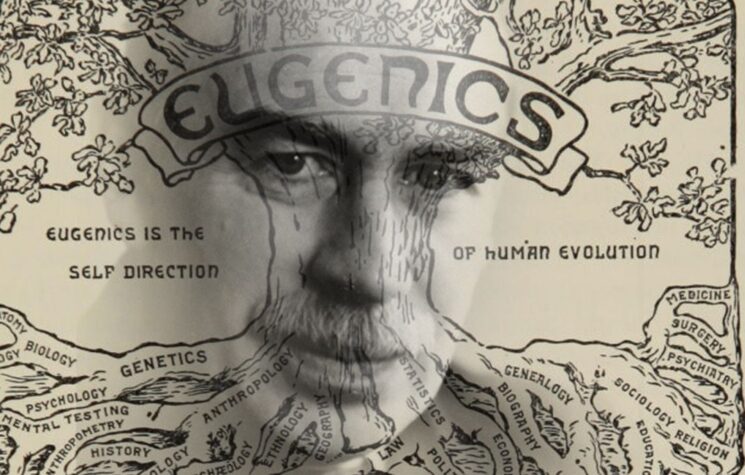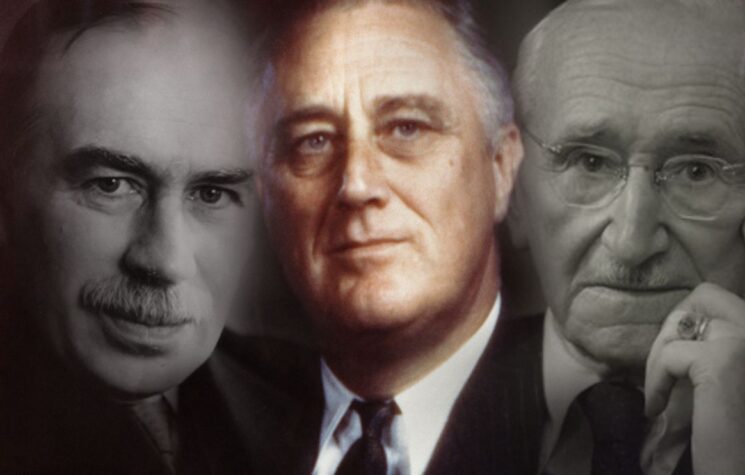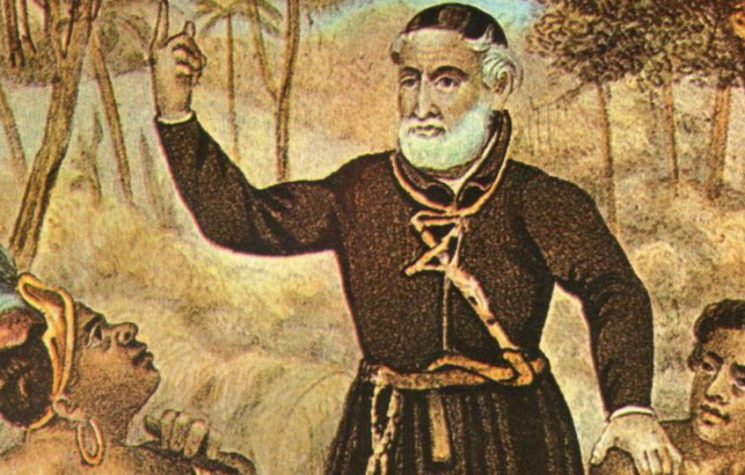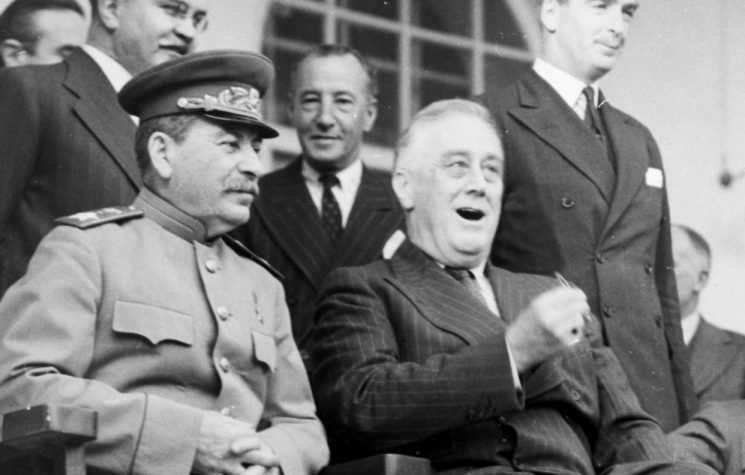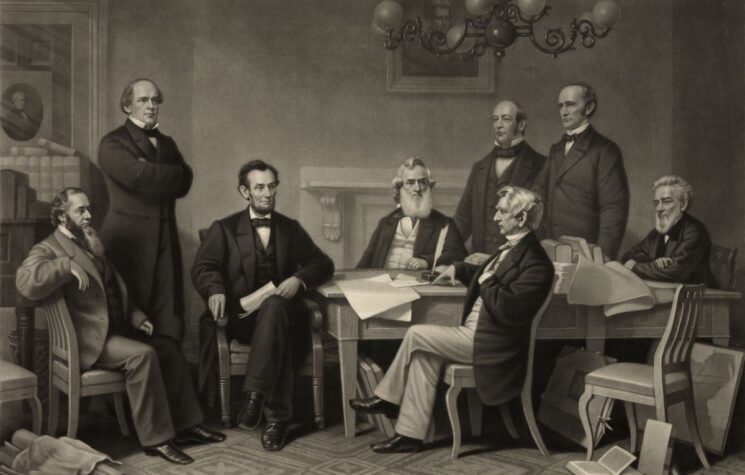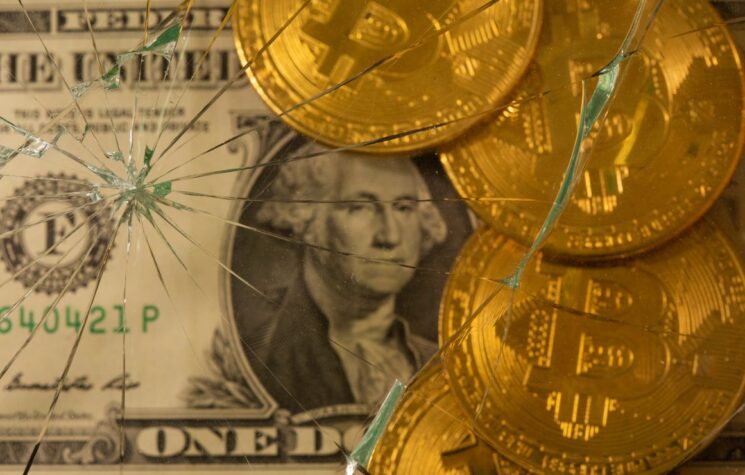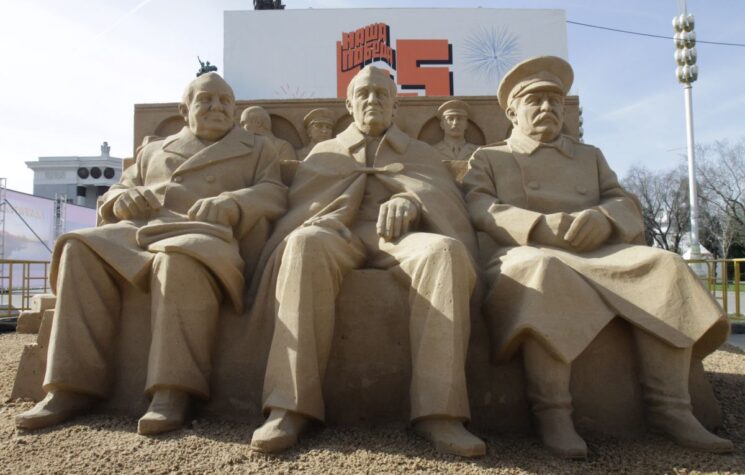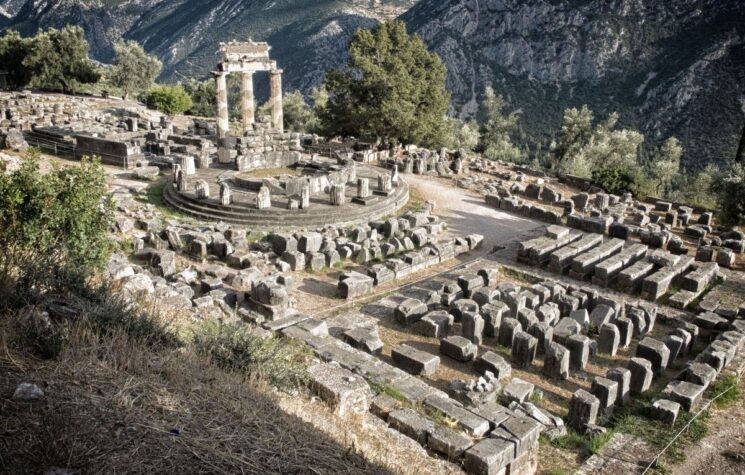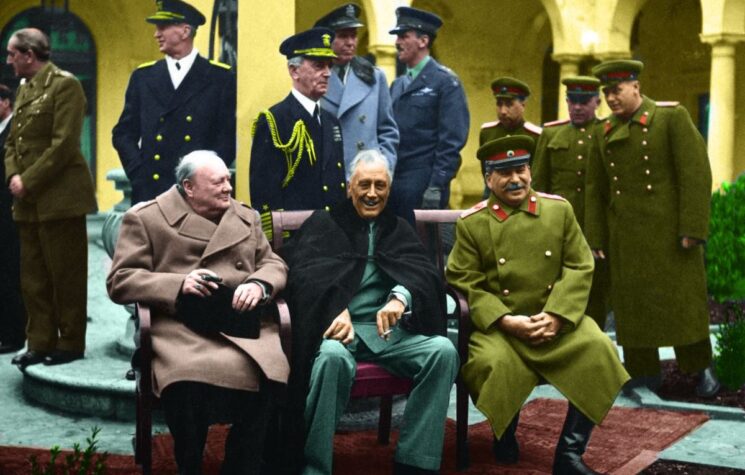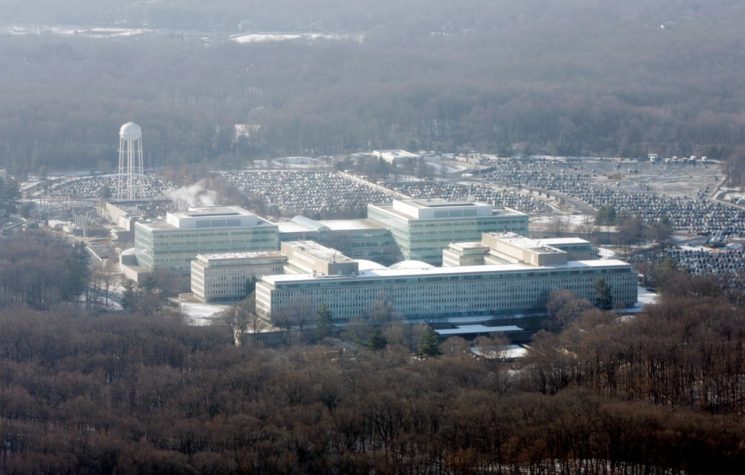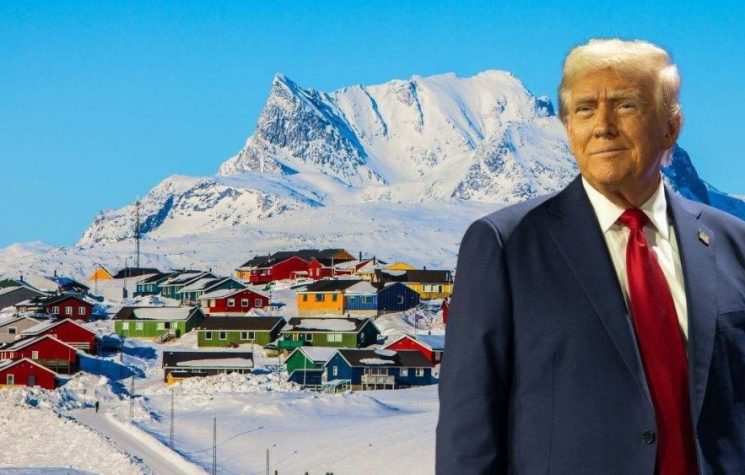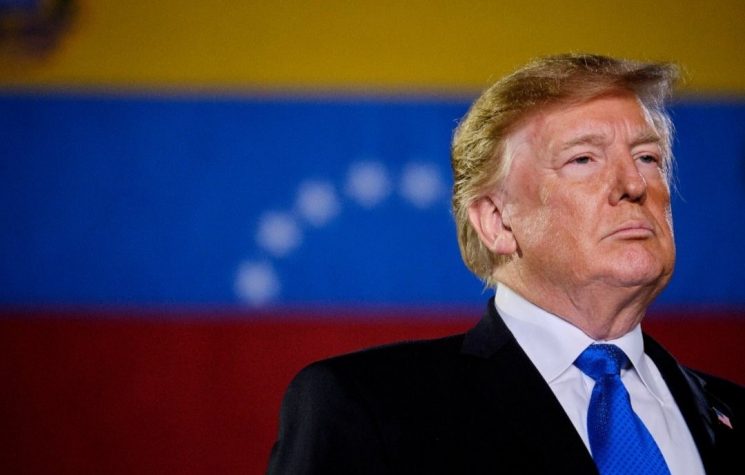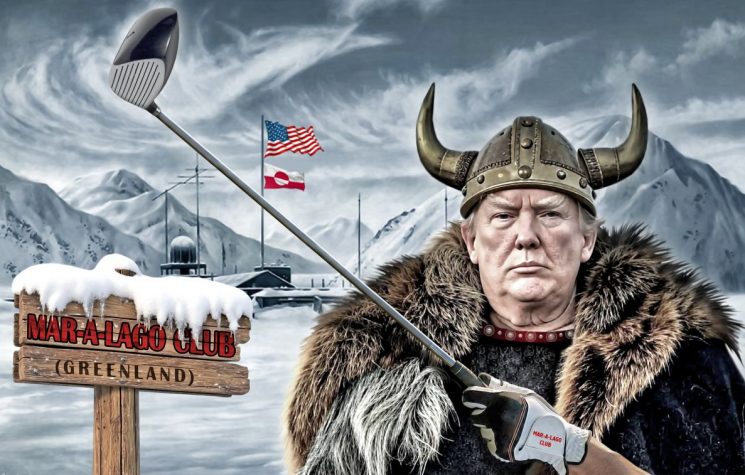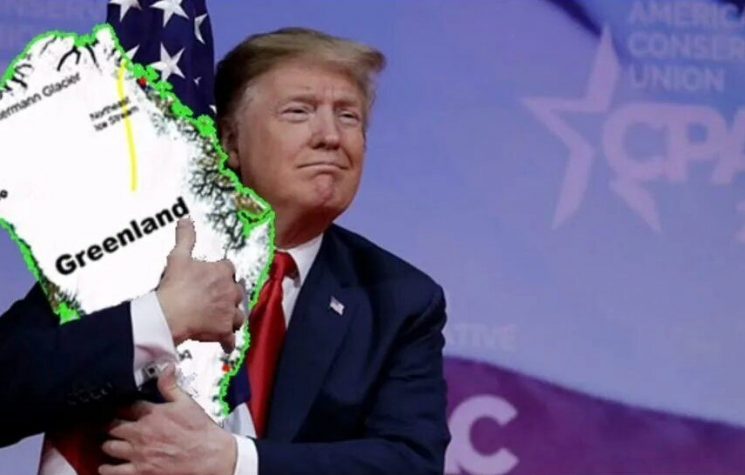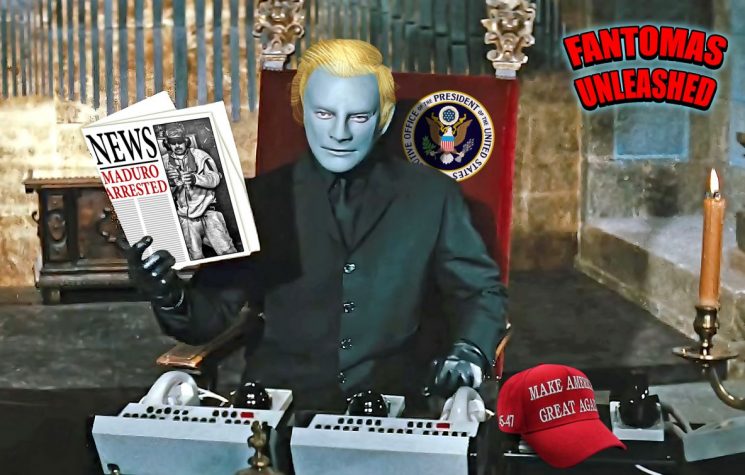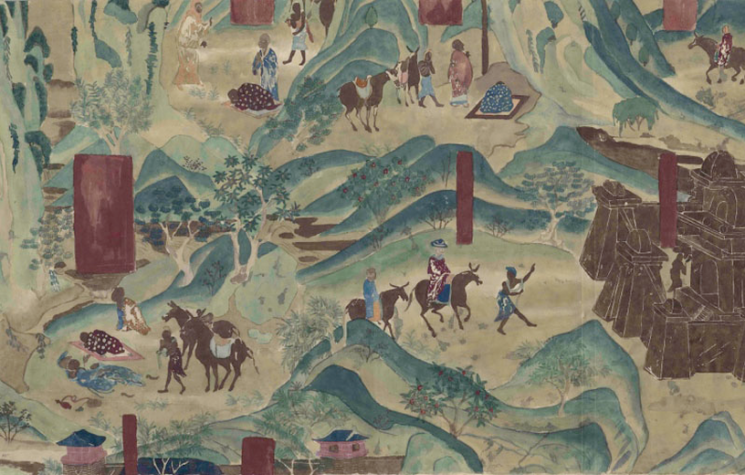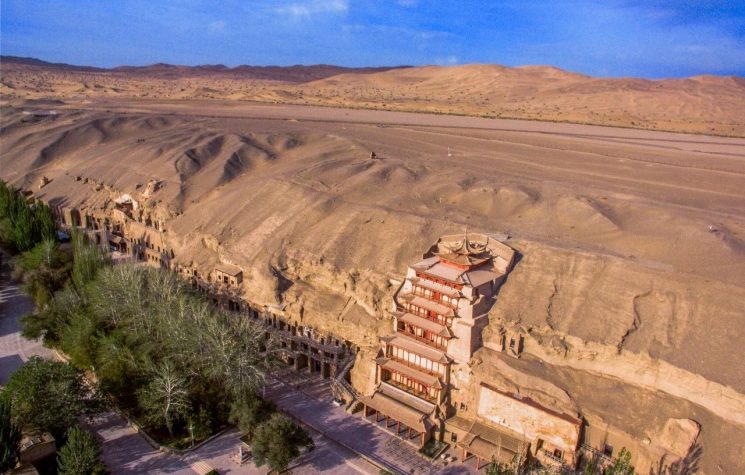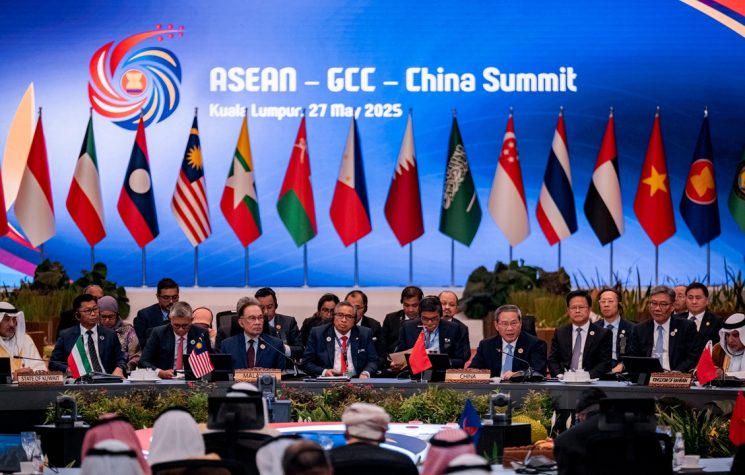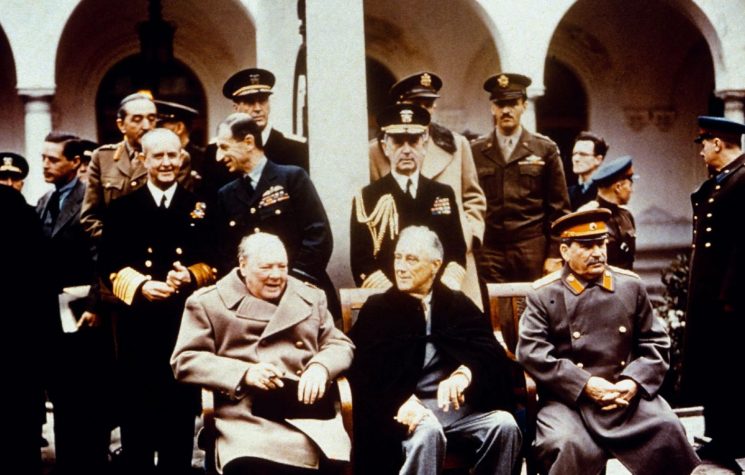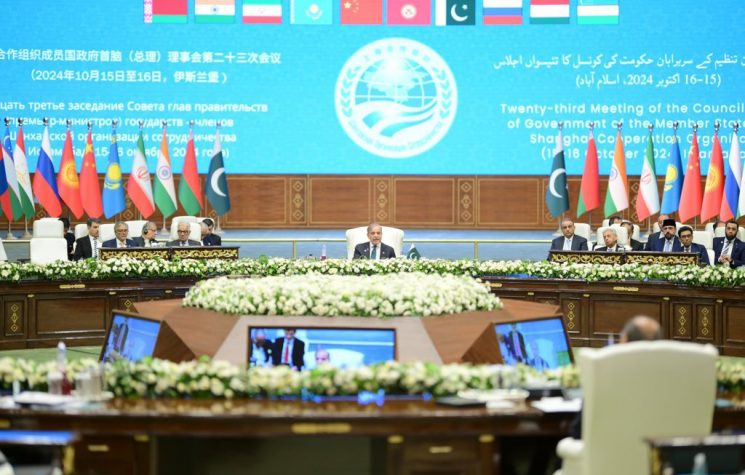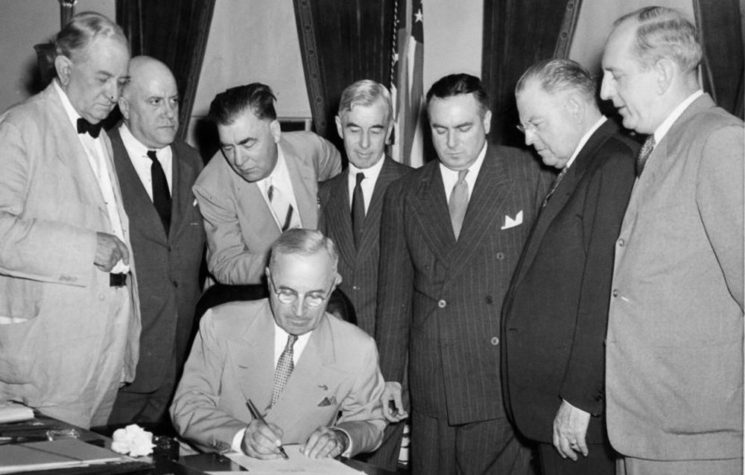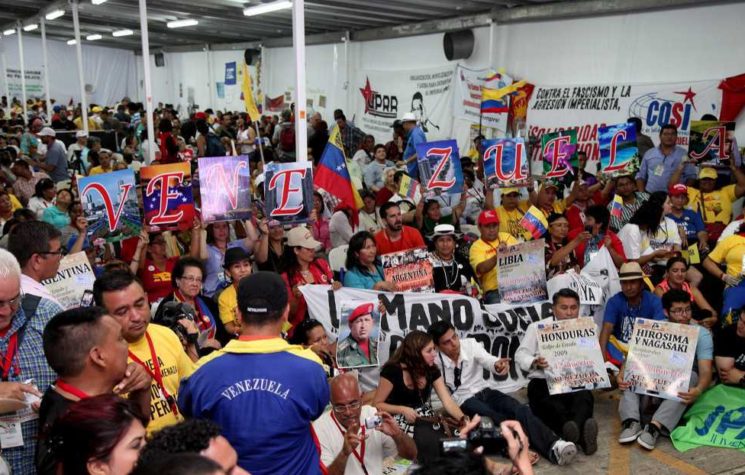French Finance Minister Bruno Le Maire has publicly admitted something normally reserved for backroom discussion in the circles of Europe’s governing elite at an event honoring the 75th anniversary of Bretton Woods (the conference which created the foundations for the post WWII world order).
At this event, Le Maire stated ever-so candidly that “the Bretton Woods order has reached its limits. Unless we are able to re-invent Bretton Woods, the New Silk Road might become the New World Order”.
He went onto state that “the pillars of that order have been the International Monetary Fund and its sister institution, the World Bank since their inception at the Bretton Woods conference in New Hampshire in 1944.”
Were a radical transformation not undertaken immediately, then Le Maire laments “Chinese standards on state and on access to public procurements, on intellectual property could become global standards”.
The finance minister’s statements reflect the growing awareness that two opposing systems operating on two conflicting sets of principles and standards are currently in conflict, where only one can succeed. Yet as much as he appears to be aware of the forces at play between two systems, Le Maire fails miserably to identify what the Bretton Woods System was meant to accomplish in the first place, or what type of “radical transformation” is needed to save Europe from the collapse of its own speculation-ridden system.
Le Maire dives so deeply out of reality that he actually believes that the radical transformation desperately needed in the west does not involve collaborating with the New Silk Road, but rather to strengthen the power of Brussels, while becoming more technocratic and more green (aka: de-industrialized, de-populated).
The Bretton Woods of 1944 and New Silk Road of Today
Seventy five years of revisionist historians largely funded by the British Roundtable/Chatham House and its American branch (The Council on Foreign Relations) have obstructed the true anti-imperial nature of the founding intention of Bretton Woods and the post war order centered on the United Nations.
Then, much as today, two opposing factions were vying to shape the essence of the world order as the Nazi machine (funded by Wall Street and London’s Bank of International Settlements) was drawing to a close. I am not talking about Capitalism vs. Communism.
This faction fight was between New Deal nationalists led by Franklin Roosevelt vs those racist imperialists represented by Sir Winston Churchill who wished to use the crisis of the war to establish a revived British Empire strengthened by American muscle. FDR’s New Dealers were characterized by their total adherence to the belief that the plague of colonialism had to be undone and a new age of long term development of great infrastructure projects had to characterize the community of sovereign nations for the coming century. These patriots believed in the internationalization of the New Deal, were committed to working with Russia and China as natural allies of America and profoundly distrusted the British.
In the case of Bretton Woods, where representatives from 44 nations convened for two weeks to create a new post war system in July 1944, this fight amounted to a battle between FDR’s trusted economic advisor Harry Dexter White (first director of the IMF and ally of FDR’s vice-president Henry Wallace) and Lord John Maynard Keynes (eugenicist, pedophile and defender of the British Empire).
Churchill and Keynes: Hard Racist/Soft Racist of the Empire
Where Churchill represented the unapologetic conservative proponent of the “White Man’s Burden” to exercise dominion over the “inferior” colored peoples of the earth, Keynes represented the soft cop of the Empire as a “Fabian Society Socialist” (aka: Social Engineer) from the London School of Economics. Where Churchill’s ilk preferred mowing down their enemies with Canons, body counts and torture as seen in the Boer War or opium wars or WWI, Keynes’ Fabian methods preferred attrition and slow subversion. Either way, the result of either pathway was the same.
While many know of the racist and pro-fascist views of Sir Churchill who spoke admiringly of Mussolini and even Hitler in the early days when it was still believed that these fascists and corporatists would act as marcher lords for the financial oligarchy, but most people are unaware that Keynes also supported Hitler and despised FDR.
Contradicting the mythos that FDR was a Keynesian, FDR’s assistant Francis Perkins recorded the 1934 interaction between the two men when Roosevelt told her: “I saw your friend Keynes. He left a whole rigmarole of figures. He must be a mathematician rather than a political economist.” In response Keynes, who was then trying to coopt the intellectual narrative of the New Deal stated he had “supposed the President was more literate, economically speaking.”
In his 1936 German edition of his General Theory of Employment, Interest and Money, Keynes wrote: “For I confess that much of the following book is illustrated and expounded mainly with reference to the conditions existing in the Anglo Saxon countries. Nevertheless, the theory of output as a whole, which is what the following book purports to provide, is much more easily adapted to the conditions of a totalitarian state.”
Keynes Contaminates Bretton Woods
Lord Keynes was deployed to lead the British delegation to Bretton Woods and advance a Delphic plan that called for creating an International Clearing Union controlled by the City of London denominating all payments in a common accounting unit: the Bancor.
The Bancor would be used to measure all nations’ trade or surplus deficits- expropriating surpluses by the end of the year and taxing countries with deficits. The imposition of a “mathematical architecture” upon the physical (non-mathematical) systems of nations was the surest way to keep an invisible cage upon the earth under an ideal of “mathematical equilibrium.” The sadistic fiscal austerity demanded by mathematical economists and other technocrats in Brussels reflect the still active force of Keynes’ spirit haunting the world today.
The Bretton Woods as a Global New Deal
In opposition to Keynes, FDR’s America was represented by his close ally Harry Dexter White in Bretton Woods. White (today slandered as a Soviet agent by CFR historians) fought tooth and nail to ensure that Britain would not be in the driver’s seat of the new emerging economic system or the important mechanisms of the IMF that he would go onto lead, World Bank or monetary policy more generally. White ensured the colonial economic “preference” system Britain used to maintain free trade looting across its empire was destroyed, and the pound sterling did not play a primary role in global trade. Instead a fixed exchange rate system was set up to guarantee that speculation could not run rampant over national growth strategies and the dollar (then backed by a powerful PHYSICAL economic platform) was a backbone for world trade (1).
White, like Franklin Roosevelt, Henry Wallace, and Harry Hopkins believed that the US currency (rather than the pound sterling) had to become the foundation for the world economy as America exited WWII as the most powerful productive, growing nation of the world untouched by the ravages of Eurasian war.
Just as the Reconstruction Finance Corporation (RFC) was used like a national bank to fund thousands of great infrastructure, transport, energy, and water projects during the New Deal and just as Glass-Steagall broke the monopoly of private speculative finance over the productive economy, these New Dealers wished to use the World Bank and IMF to issue long term, low interest productive credit for long term mega infrastructure projects around the world. Not just in Europe’s reconstruction.
FDR’s battle with Churchill on this matter was well documented in his son/assistant Elliot Roosevelt’s book As He Saw It (1946): “I’ve tried to make it clear … that while we’re [Britain’s] allies and in it to victory by their side, they must never get the idea that we’re in it just to help them hang on to their archaic, medieval empire ideas … I hope they realize they’re not senior partner; that we are not going to sit by and watch their system stultify the growth of every country in Asia and half the countries in Europe to boot.”
FDR continued: “`The colonial system means war. Exploit the resources of an India, a Burma, a Java; take all the wealth out of these countries, but never put anything back into them, things like education, decent standards of living, minimum health requirements–all you’re doing is storing up the kind of trouble that leads to war. All you’re doing is negating the value of any kind of organizational structure for peace before it begins.”
Writing from Washington in a hysteria to Churchill, Foreign Secretary Anthony Eden said that Roosevelt ”contemplates the dismantling of the British and Dutch empires.”
In 1942, FDR sent his close ally Wendell Wilkie on a world tour to meet with international leaders of colonial nations in order to spread the President’s vision for a global new deal. On his return Willkie gave a speech saying:
“In Africa, in the Middle East, throughout the Arab world, as well as in China, and the whole Far East, freedom means the orderly but scheduled abolition of the colonial system. I can assure you that this is true. I can assure you that the rule of people by other people is not freedom and not what we must fight to preserve… Men and women all over the world are on the march, physically, intellectually and spiritually. After centuries of ignorant and dull compliance, hundreds of millions of people in Eastern Europe and Asia have opened the books. Old fears no longer frighten them. They are no longer willing to be eastern slaves for western profits. They are beginning to know that men’s welfare throughout the world is interdependent. They are resolved, as we must be, that there is no more place for imperialism within their own society than in the society of nations.”
This vision was expressed continually by FDR in his hundreds of speeches, as well as by his Vice-President Henry Wallace, in the creation of the Atlantic Charter, and Four Freedoms. It was embedded in the defense of national sovereignty in the UN Constitution (conspicuously non-existent in the British-directed League of Nations earlier). It was meant to be the governing spirit animating the world as mankind entered a matured age of creative reason.
So What happened?
Describing the deep British penetration of the American state department, infested with Rhodes Scholars and Fabians, FDR described his understanding of the problem to his son:
“You know, any number of times the men in the State Department have tried to conceal messages to me, delay them, hold them up somehow, just because some of those career diplomats over there aren’t in accord with what they know I think. They should be working for Winston. As a matter of fact, a lot of the time, they are [working for Churchill]. Stop to think of ’em: any number of ’em are convinced that the way for America to conduct its foreign policy is to find out what the British are doing and then copy that!” I was told… six years ago, to clean out that State Department. It’s like the British Foreign Office….”
As long as FDR was in office, this British-run hive was kept at bay, but as soon as he died, the infestation took over America and immediately began undermining everything good FDR and his allies had created.
Harry Dexter White was ousted from his position as director of the IMF and labelled a communist agent. Henry Wallace was ousted for similar reasons and worked with White on a 1948 presidential bid as third party presidential candidate. William Wilkie (who had discussed creating a new party with FDR) died in October 1944, and FDR’s right hand man Harry Hopkins who did the most to initiate a close bond of friendship with Stalin, died in 1946. Elliot Roosevelt interviewed Stalin a few years later, and recorded that Stalin always believed that Elliot’s father was poisoned “by Churchill’s gang.” By 1946, Churchill ushered in the Cold War setting former allies at each other’s’ throats for the remaining 70 years while dropping nuclear bombs on a defeated Japan. Stalin bemoaned Roosevelt’s death saying “the great dream has died”.
It took the oligarchy another 25 years to dismantle the fixed exchange rate system of the Bretton Woods leading to Nixon’s 1971 floating of the US dollar onto the speculative markets, converting the world ever more into a militarized casino system. Rather than used as instruments for long term growth as they were intended, the IMF and World Bank were used as tools of debt slavery and re-colonialization as outlined in John Perkins’ Confessions of an Economic Hitman.
Today the world has captured a second chance to revive the “great dream”. In the 21st century, this great dream has taken the form of the New Silk Road, led by Russia and China (and joined by a growing chorus of nations yearning to exit the invisible cage of colonialism).
If western nations wish to survive the oncoming collapse, then they would do well to join this new framework rather than drink more of the poison promoted by the likes of Le Maire, Ursula von Leyen and their masters who want to transform the dying remains of Bretton Woods into a “Green New Deal”.
Appendix: Churchill, Keynes and FDR in their own words…
“Galton’s eccentric, sceptical, observing, flashing, cavalry-leader type of mind led him eventually to become the founder of the most important, significant and, I would add, genuine branch of sociology which exists, namely eugenics.”
-John Maynard Keynes on Galton’s Eugenics, Eugenics Review 1946
“I do not agree that the dog in a manger has the final right to the manger even though he may have lain there for a very long time. I do not admit that right. I do not admit for instance, that a great wrong has been done to the Red Indians of America or the black people of Australia. I do not admit that a wrong has been done to these people by the fact that a stronger race, a higher-grade race, a more worldly wise race to put it that way, has come in and taken their place.”
– Winston Churchill to the Peel Commission, 1937
“There never has been, there isn’t now, and there never will be, any race of people fit to serve as masters over their fellow men… We believe that any nationality, no matter how small, has the inherent right to its own nationhood.”
– Franklin Delano Roosevelt, March 1941
“They who seek to establish systems of government based on the regimentation of all human beings by a handful of individual rulers call this a new order. It is not new and it is not order.”
– Franklin Roosevelt








